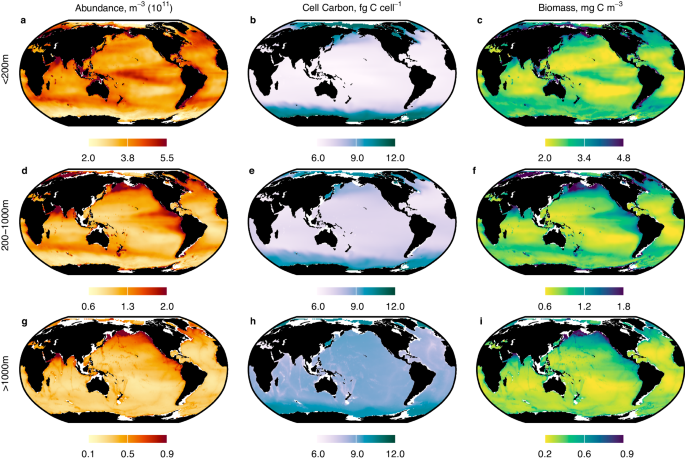Phys.org August 14, 2024
Heterotrophic Bacteria and Archaea (prokaryotes) are a major component of marine food webs and global biogeochemical cycles. Yet, there is limited understanding about how prokaryotes vary across global environmental gradients, and how their global abundance and metabolic activity (production and respiration) may be affected by climate change. An international team of researchers (Australia, Spain, Austria, the Netherlands, Canada) used global datasets of prokaryotic abundance, cell carbon and metabolic activity to show that mean prokaryotic biomass varies by just under 3-fold across the global surface ocean, while total prokaryotic metabolic activity increases by more than one order of magnitude from polar to tropical coastal and upwelling regions. Global prokaryotic biomass in surface waters was projected to decline while prokaryotic respiration would increase. The rate of prokaryotic biomass decline was one-third that of zooplankton and fish, while the rate of increase in prokaryotic respiration was double. According to the researchers the data suggests that future, warmer oceans could be increasingly dominated by prokaryotes, diverting a growing proportion of primary production into microbial food webs and away from higher trophic levels as well as reducing the capacity of the deep ocean to sequester carbon… read more. Open Access TECHNICAL ARTICLE

Contemporary global distribution of prokaryotes. Credit: Nature Communications volume 15, Article number: 6943, 13 August 2024